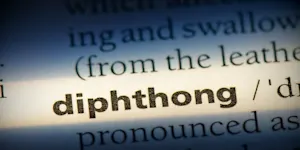What Makes This Word Tick
"Anaphora" is one of those ten-dollar words that might make you feel like you've stepped into an English class. Essentially, it's a rhetorical device involving the repetition of a word or phrase at the beginning of successive clauses or sentences. It’s like giving a speech and starting a bunch of sentences the same way to really hammer in your point. Politicians and poets love this trick — it adds rhythm, builds emotion, and makes speeches and poems more memorable.
If Anaphora Were a Person…
Anaphora would most definitely be that friend who is always emphatically driving home their favorite point. They're enthusiastic, persistent, and a touch theatrical. Imagine someone who collects vintage records and starts every conversation with, "As I always say…," before launching into a passionate story or argument. They're engaging and persuasive, never shying away from making a bold statement.
How This Word Has Changed Over Time
Interestingly, "anaphora" has maintained a pretty consistent definition over time. While the applications and understanding of rhetoric have evolved, this particular word has stuck to its guns for centuries. From ancient Greek orators to today's TED Talk speakers, the essence of anaphora remains unchanged, proving that some classic techniques never go out of style.
Old Sayings and Proverbs That Use Anaphora
While you won't find anaphora itself popping up in grandma's favorite proverbs, the device certainly hides in many a saying. Think of those repetitive wisdom nuggets where a phrase hits home a couple of times for emphasis — they’re employing anaphora in disguise.
Surprising Facts About Anaphora
Did you know that some of history's most famous speeches rely heavily on anaphora? Martin Luther King Jr.'s "I Have a Dream" speech is a classic example. This repetition technique is used to invoke feelings and inspire action, showing the real power words can have when carefully structured.
Out and About With This Word
Anaphora makes its presence known in places you might not expect. Think about song lyrics or your favorite TV series — writers love to use repetition to create a lyrical quality or even an iconic catchphrase. Next time you’re diving into your favorite media, keep an ear out!
Pop Culture Moments Where Anaphora Was Used
Hollywood is rife with anaphora. Take the famous "Bond, James Bond" line — it’s more than just a name; it’s a brand, reasserted through repetition. Consider how iconic phrases in movies and TV shows resonate so effectively through the strategic use of repetition.
The Word in Literature
In the realm of literature, anaphora is a celebrated fixture. It's often found in the works of Shakespeare and Dickens who knew well how to keep readers hooked. Anaphora adds a layer of rhythm and resonance that can transform prose and poetry into hypnotic narratives.
Moments in History with Anaphora
Historically, anaphora has been at the core of persuasive speeches and writings. Consider Winston Churchill’s wartime speeches where anaphora was used to rally a nation. Such moments highlight its power to capture attention and inspire hope or determination.
This Word Around the World
Culturally, anaphora isn't just reserved for English. Many languages use similar repetitive structures, though they might call it different things. From Arabic poetry to ancient Sanskrit literature, anaphora's cousins are busy at work creating beauty and drive in text.
Where Does It Come From?
Derived from the Greek word "anapherein," meaning "to carry back," anaphora has linguistic roots deep in the ancient world. It's like carrying the listener back to a central idea or theme with every repeated phrase.
How People Misuse This Word
People occasionally mix up anaphora with other rhetorical devices or think it means any repetition in writing. However, true anaphora is about the repetitive use of a phrase at the beginning of sentences for emphasis — a key point which sometimes slips through the cracks.
Words It’s Often Confused With
Epistrophe: Repetition of a word at the end of successive clauses or sentences.
Alliteration: Repetition of the same initial consonant sounds in successive words.
Repetition: A general term, while anaphora is more specific to sentence beginnings.
Additional Synonyms and Antonyms
While there are no direct synonyms due to its specificity, related rhetorical devices like "epanalepsis" or "epizeuxis" might be of interest. There aren’t antonyms in the traditional sense, as it's a device rather than a descriptive word.
Want to Try It Out in a Sentence?
Remember Churchill’s famed repetition? Try it yourself: "We shall not fail, we shall not falter, we shall persevere." See how that repetitive drive gives your statement added weight? You're practically ready to give a rousing speech yourself!
















